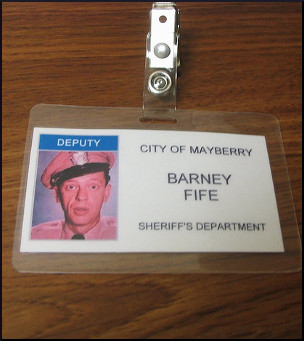
Emily Topper, writing for The Gargoyle at Flagler College, examined the process of obtaining an I.D. in Florida, and found a system rigged against people experiencing homelessness
This rigged system is repeated in many localities throughout the U.S. Topper spoke with Mark Samson, a Community Resource Officer, who said:
In order to get a Social Security card, they need to have some type of ID card. But in order to get that, they must have the Social Security card.
This is a classic Catch-22 situation, and the damage it does can not be overstated. There may be scattered exceptions, but in most places a person needs I.D. to open a bank account, cash a check, apply for a job, or rent a Post Office box. The laws have even been tightened to prevent someone with no proof of a permanent physical address from using a private mailbox facility. Is the insanity of that sinking in? The person who most needs it, because of having no place to actually live, cannot obtain a mailing address.
The days of anonymous Greyhound Bus journeys are over, because a photo I.D. must be presented even if the ticket is paid for in cash. Without I.D., a person can’t rent a hotel or motel room (or even, as a recent widely publicized case demonstrated, occupy a room paid for by kind strangers.)
A person in need of any kind of government assistance, whether it be food stamps, medical treatment, or disability benefits, is ineligible without I.D. And good luck getting into a temporary shelter. Sure, whoever runs the shelter needs to protect guests from violent criminals and sexual predators. But the policy, as it stands, also puts vulnerable people at risk by leaving them on the streets with the violent criminals and sexual predators.
A Typical Story
Topper relates the story of Vincent Youngberg of St. Augustine. During a recent incarceration, his vehicle registration had expired and a ticket went unpaid, so the car was impounded. After being released from prison, Youngberg learned that getting the car back would require I.D., which in turn would require a Social Security card, birth certificate, and two proofs of residency. And money for the towing and storage fees, of course. Before he could get any of this together, the impoundment contractor sold the car along with its contents—including the birth certificate that Youngberg needed to prove his existence.
Requesting a replacement birth certificate is a red-tape-intensive job that involves the ability to fill out forms, a payment to the bureaucracy, a usable mailing address, and a long, long wait while the state in question takes weeks or months to process the application. It amounts to such a grueling ordeal that some specialist agency workers and volunteers do nothing but help people acquire the paperwork to validate their lives. Homeless advocates in St. Augustine work with a couple of substitutes which, though inadequate, are “better than nothing.” Beth Kuhn, a caseworker at the St. Francis House, told the reporter:
If [the homeless] were treated at Flagler Hospital, they can ask for a face-sheet from the records office there. This sheet is accepted at the Social Security office, and they will give you a printout… valid enough to get a real state ID. Once you have that, you can go back and get a real Social Security card.
Not exactly a miracle of accommodation, but better than the alternative. Topper says a person leaving prison receives a practically useless paper with a picture and booking information, and quotes Vincent Youngberg:
It never expires, but no one except law enforcement accepts it. I don’t understand it. I was fingerprinted when I was released from prison. Why can’t they use those fingerprints? Why can’t they just give me a photo I.D.? Even if it was a temporary one for 90 days, just so I could get something.
Is the irony sufficiently glaring? The fingerprints of former inmates are in the system, along with their complete histories, their facial biometrics, and probably their DNA. The government was sufficiently convinced of their identities, letting them serve the sentences. Shouldn’t they at least come out of prison with viable identification?
Reactions?
Source: “Homeless struggle to obtain IDs, Social Security cards in Florida,” Flagler.edu, 10/25/13
Image by brykmantra


